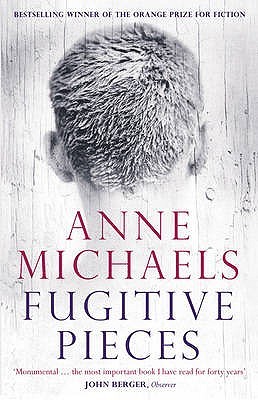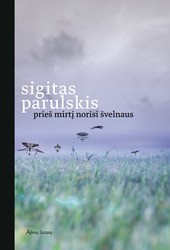My ‘To Read’ shelf on Goodreads is totally random and I would have hard time to remember exactly why one or the other book found its way there. ‘Fugitive Pieces’, however, entered the list very consciously and was on and off on my mind for a while. So imagine my joy when I spotted it in a tattered bike rental/book shop last time I visited Budapest. It was a well used copy but I knew immediately Id take it no matter what.
There are some covers that catch my attention big time and this was one of those cases. I cannot say exactly what it is I am drawn to in this one but I find it very beautiful.
.

What is also beautiful is the writing in this book. Anne Michaels is a poet and it shows. I loved her language so much and often had to really restrain myself not to write down a quote after quote. And that, to be honest, was the best part of the book to me. I am a sucker for a good quote and if it hits home I will love it forever.
Unfortunately, I was not a big fan of the book itself. If it wasn’t for my love of the quotes, I would have given it a 2 star rating, which is a curious situation.
My main problem was the lack of credibility and failure to relate to the characters. There is a second narrator introduced towards the end of the novel but his voice was so alike to the first narrator that I had to repeatedly remind myself it was another person speaking. Also, I did not like at all the relationships these two male narrators have with the women in their lives. I was actually surprised a woman wrote that. Aaaaand, why did she have to kill the main protagonist in such a fashion?.. So pointless.. (This is not a spoiler, because it happens on the first page of the book).
Some of my favourite quotes:
*She wore the characters in her face as she read.
*A biography of longing.
*When I woke, my anguish was specific: the possibility that it was as painful for them to be remembered as it was for me to remember them.
*Athos’s stories gradually veered me from my past. Night after night, his vivid hallucinogen dripped into my imagination, diluting memory.
*His knobbly arthritic hands trembled as he reached deliberately for a fig or a lemon, holding one at a time. In those days of scarcity his shaking care seemed appropriate, acknowledgement of the value of a single plum.
*I stood in the valleys and imagined the grief of the hills.
*Some stones are so heavy only silence helps you carry them.
*And later, when I began to write down the events of my childhood in a language foreign to their happening, it was a revelation. English could protect me; an alphabet without memory.
*In his desk, I found a packet of letters…. The intimacy that death forces on us.
*The silence of the empthy flat pressed in on me with the weight of self-pity.
*The clutter of hibernation.
*I remembered how my classmates and I used to squeeze the slush between our boots, draining the water, leaving little molehills of white ice. We worked industriously until the schoolyard was a miniature range of mountains.
*Yet at the same time as she was disappearing, she seemed to become more than her body. And that’s when I realized how deeply Naomi’s daughterly attentions were injuring me, each small jar of scented hand lotion, each bottle of perfume, each nightgown. Not to mention the distress evoked by the futility of objects that outlast us.

